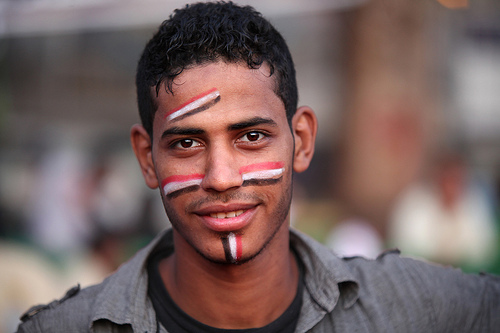Egypt: A call for unity, inclusivity
Following is an essay published July 11 by Cornelis Hulsman, editor-in-chief, Arab-West Report.
The following essay, written by Cornelis Hulsman, was published on July 11 on the Arab-West Report (AWR) website. Fr. Doug May, a Maryknoll missioner who serves in Cairo, worked at the AWR until the end of June 2013.
As I have written before, Egypt is deeply divided. We have advocated unity and have been attacked in e-mails and words by a number of people who do not want any dialogue with the Muslim Brothers. More specifically, they do not want a call for unity; they want us to be one-sided.
The answer is no! We will not yield to such pressure!
[On July 11] Johan ten Hove, retired head of the foreign affairs department of the Dutch daily, Trouw, whom I know well, described how millions of Egyptians have welcomed the coup d’état in Egypt. The term coup d’état, however, is disputed. People who supported the military intervention refuse to call this a coup. The military responded to the “will of the people,” they say. It is true they did so but, Johan ten Hove writes, “if the army ousts a democratically elected president and send the government home then this is a coup d’état.”
The army had reasons for this coup, but that does not change the fact that the army removed President Morsi (Mursī).
The army gave President Morsi a 48-hour ultimatum to respond to the will of the people. In other words, Morsi should have called for early presidential elections. He refused.
The argument of Muslim Brothers was that he was elected and thus that he should remain in office for four years, regardless of the sentiments of the people. This was also the message of Dr. Safwat el-Hagazy, a leading Muslim Brotherhood firebrand. On December 13, 2012, he warned the Copts not to take the side of the feloul (supporters of former president, Hosni Mubarak). Asking for Morsi’s resignation is crossing the line. If anyone splashes water over him, we splash him with blood (http://www.youtube.com/watch?v=I6tDwmw6iOM). That is a not-so-discrete call for violence if Morsi would be removed. In a TV interview on June 18, 2013, he repeated his opinion: Morsi should not be removed. The will of the population does not matter, since he was elected for four years and again the threat of splashing blood was made (http://www.youtube.com/watch?v=FnapIGCugr4).
Did the army have an alternative? They knew of the resistance of the Muslim Brothers and saw the massive sentiments against President Morsi. There was no parliament that could send the president home. The validity of the election of the Shura Council, or Senate, is disputed by the High Court. Thus, there was no other institution that could break the deadlock between the president and the army.
We now have a situation whereby Muslim Brothers are hammering on the fact that President Morsi was the first democratically-elected civilian president and the opposition is fixated on all things that have gone wrong during his one year in office. Both parties are not compromising. Fights are taking place in the streets, accusations are hurled back and forth and what is the truth? Leading Muslim Brothers are arrested and presenting themselves as the victims of oppression, which gives them the strength to fight and declare a civil war on the Egyptian army.
Egypt should not slide in civil war.
This will require ending all agitation and polemics, accepting that not one political block can rule Egypt alone and holding elections.
Dr. Safwat el-Hegazy, before the coup d’état, spoke about sending weapons to the rebels in Syria. Now Syrian fighters have tried to get into Egypt and were returned at the airport. Safwat el-Hegazy is one of the people inciting people to fight. Any agitators who call for violence deserve to be arrested; regardless to what political stream they belong, Muslim Brother, feloul, liberal, or whatever other conviction.
Truth is often the first victim of intensive polemics. Parties slander one another. Threats are made. Elements are sought and found to present the other party in the most negative light possible. Many things might be true and other things might not be true. It is therefore important for the truth to be revealed, which is only possible when people are obviously non-partisan.
Efforts need to be made to find the truth.
Muslim Brothers represent an important part of Egypt but cannot rule the country alone and neither can any other single party. The only way out is for all political parties to be united and form a national unity government.
Dr. Abdel Moneim Aboul Futouh, chairman of the Strong Egypt Party, stated in an interview with Arab-West Report on June 18 that he preferred a referendum decide whether to hold new presidential elections. Such a referendum seems to me the only way out.
Forcing the opinion of millions of Egyptians upon that of other millions, with or without support of the army, can only result in violence, be it civil war if this is large-scale resistance, or terrorism if the resistance is smaller. Elections are therefore a must, both for the presidency and for parliament.
Cornelis Hulsman
Editor-in-Chief, Arab-West Report
Photo by Pierre Kattar

